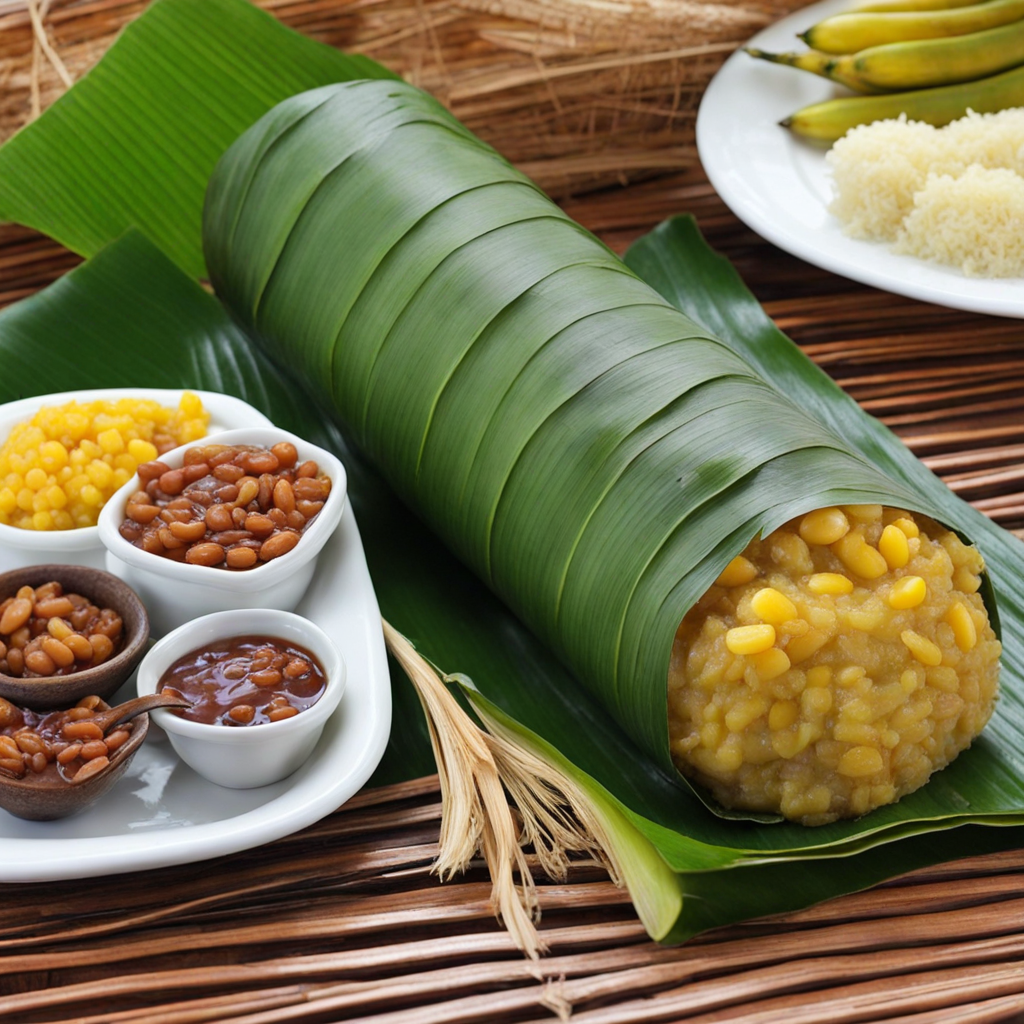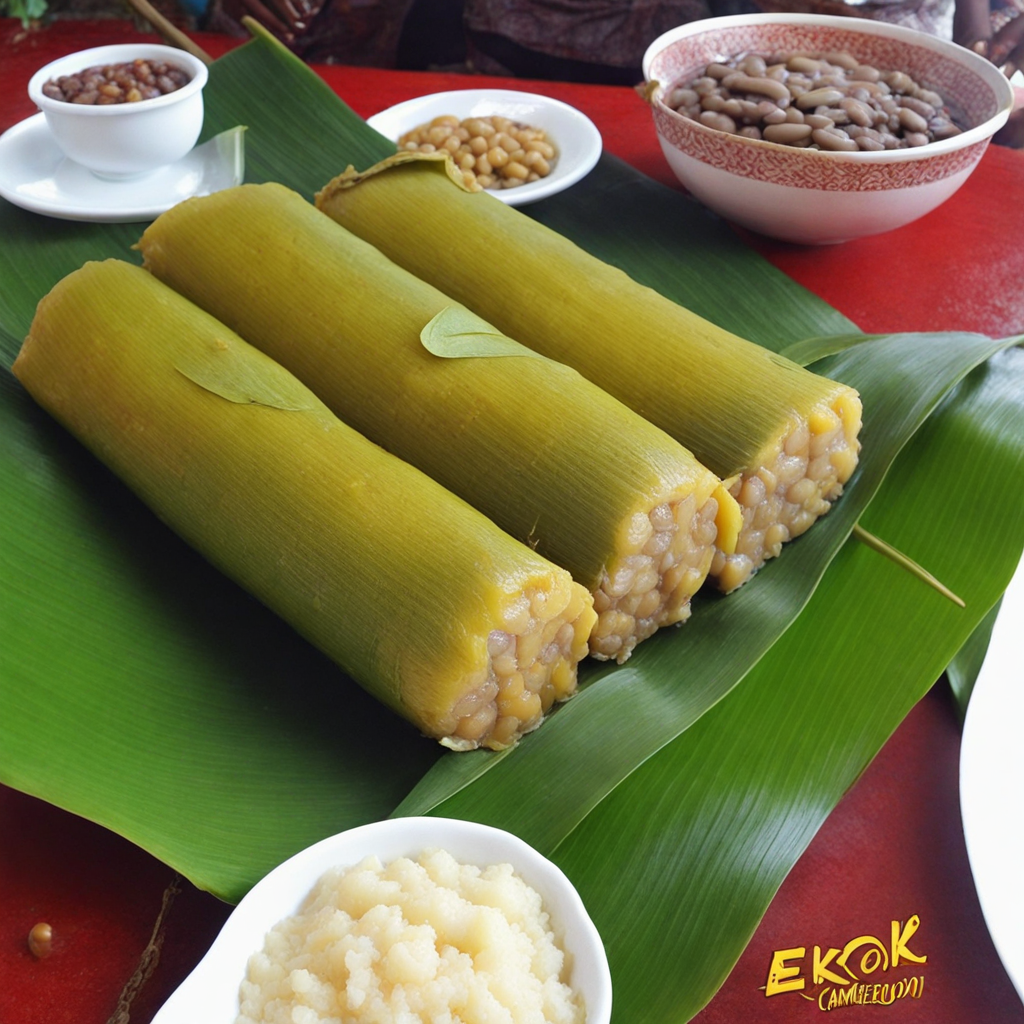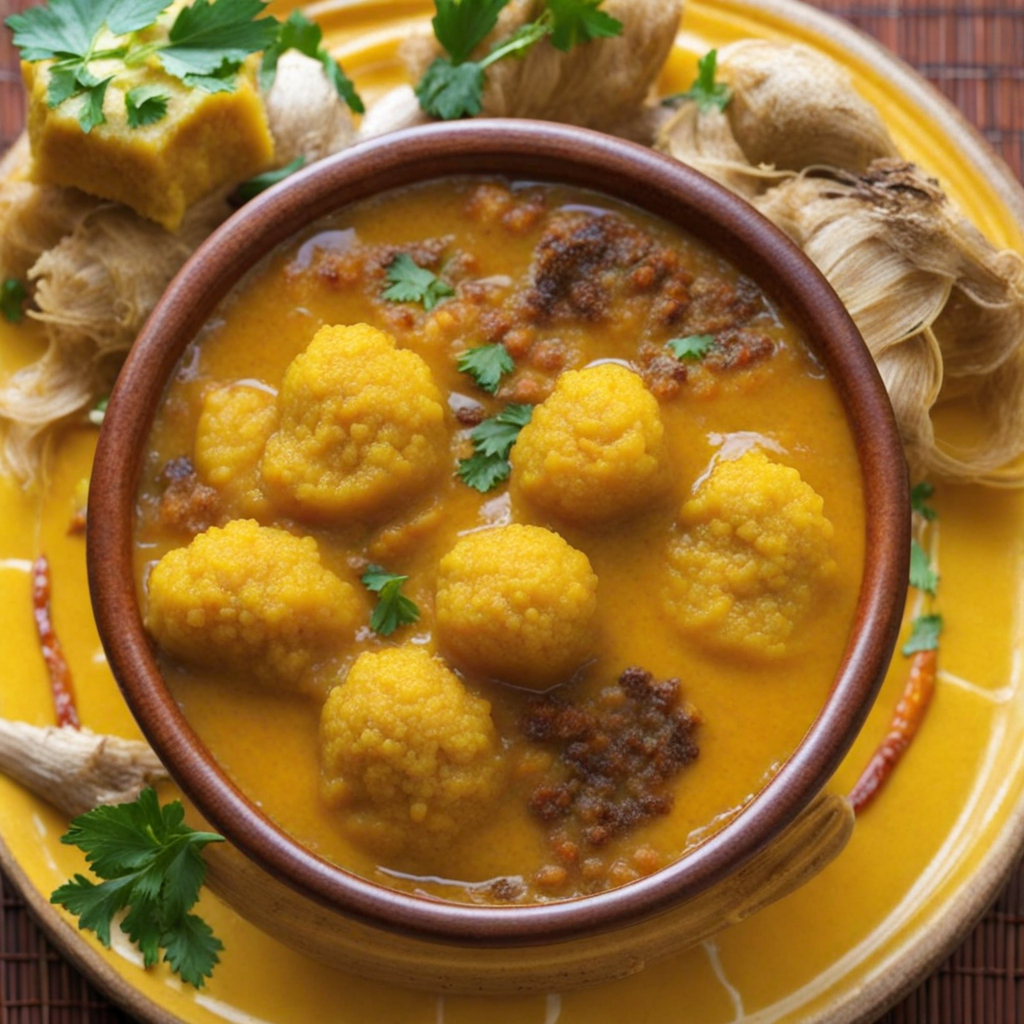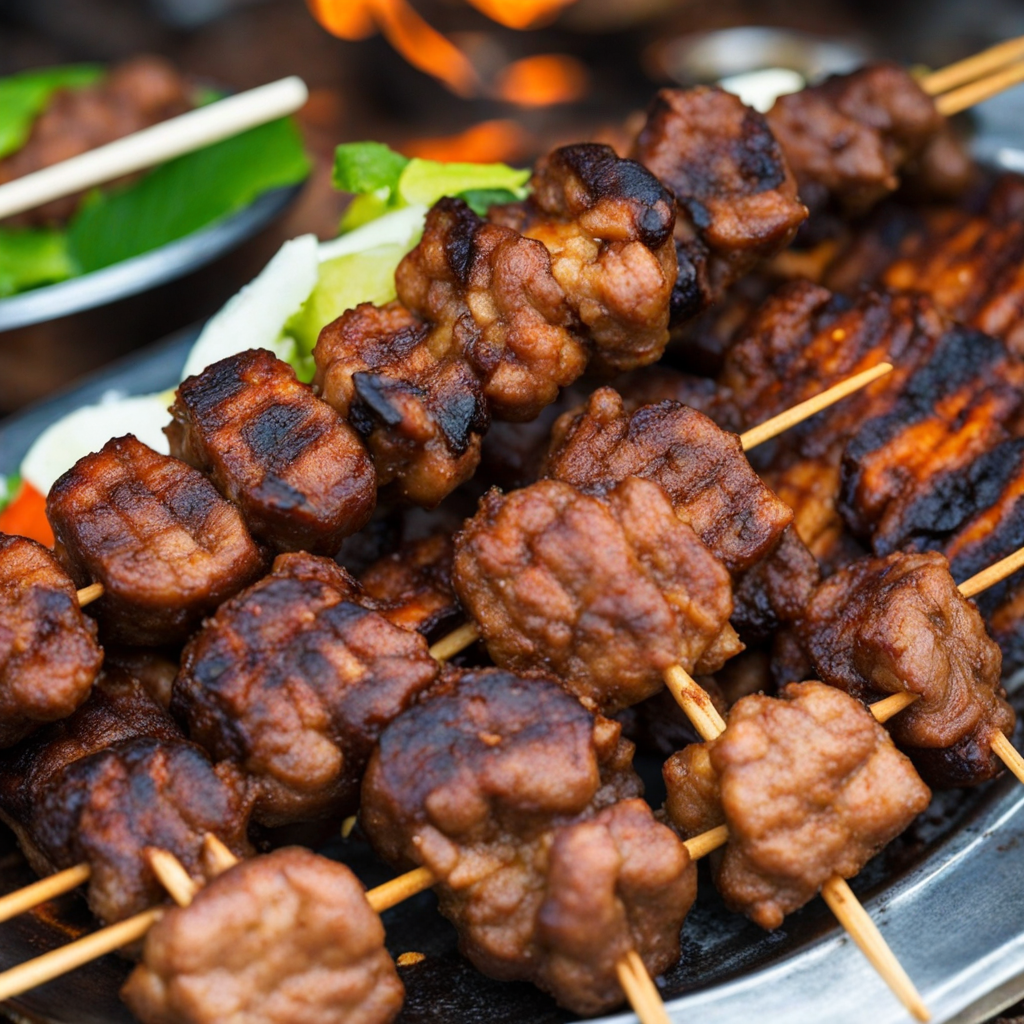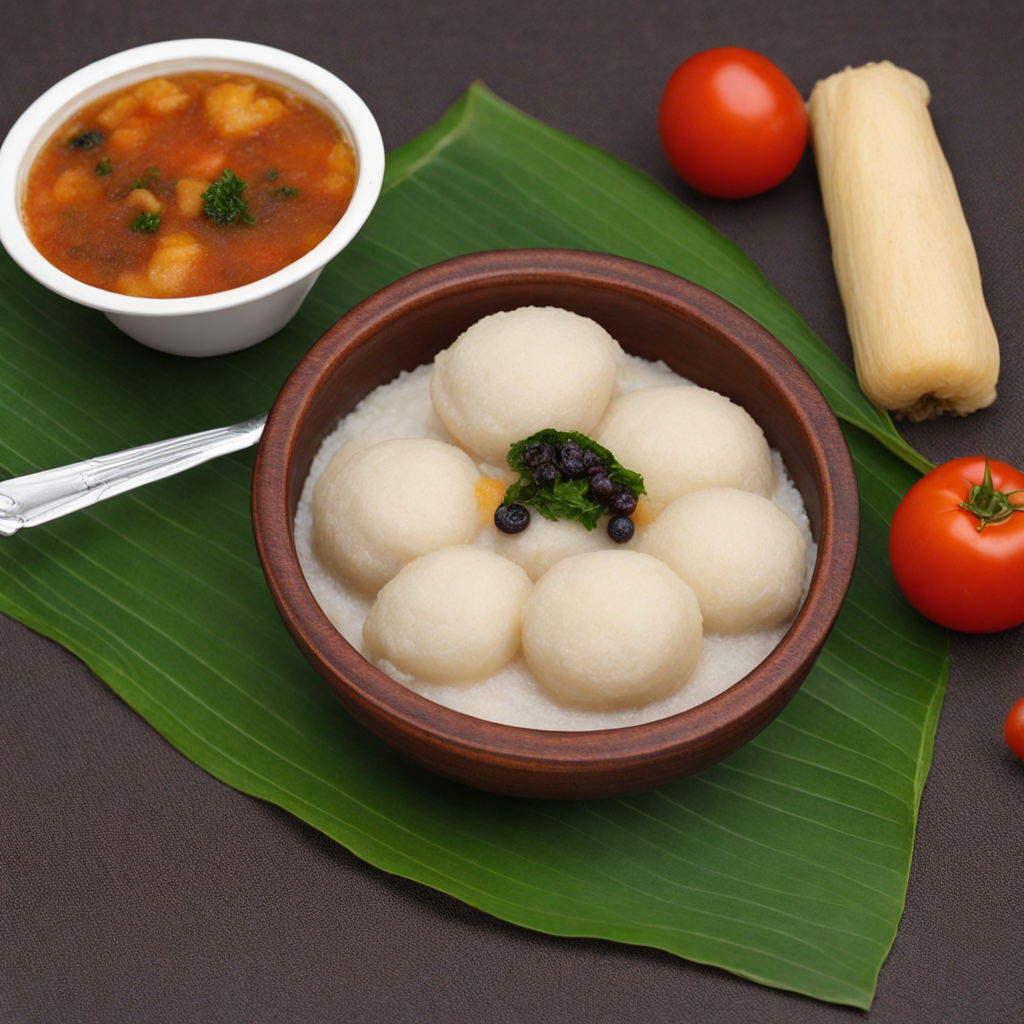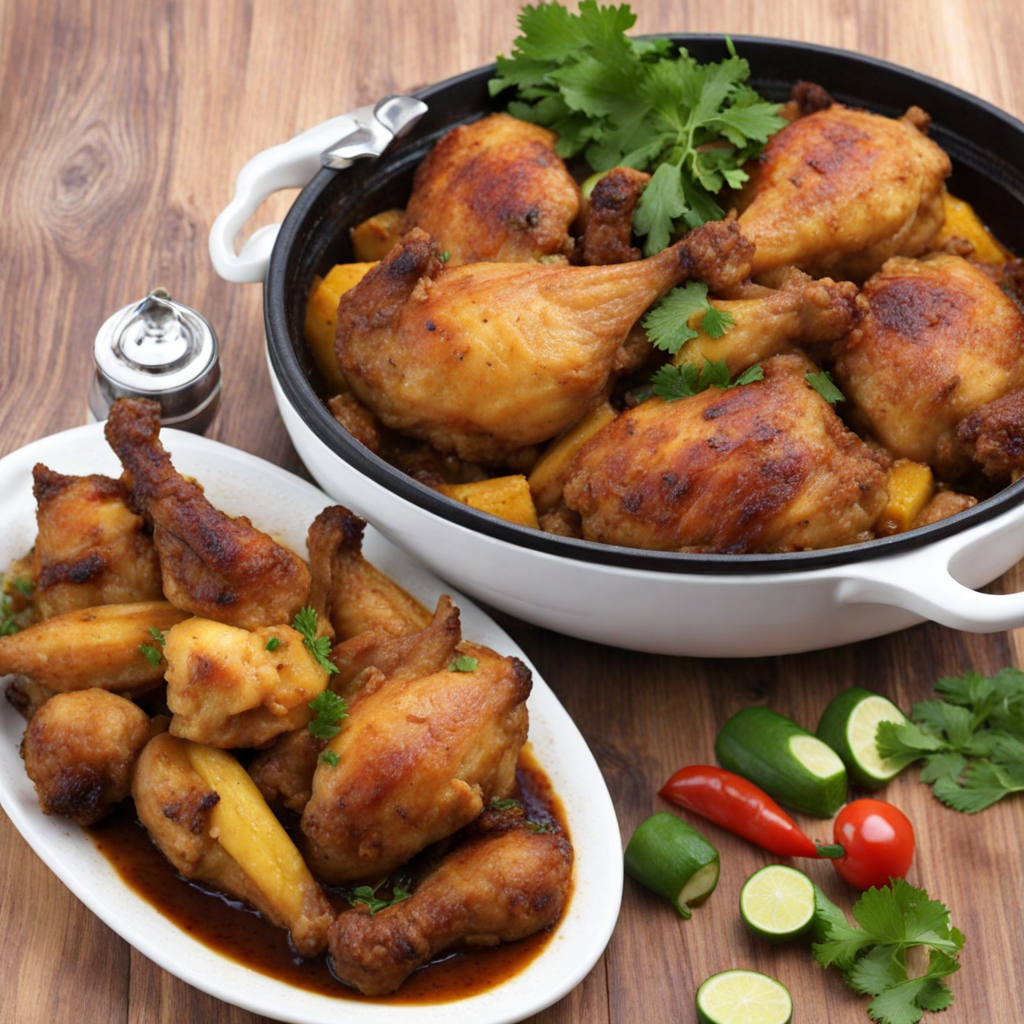Ekoki
Ekoki is a delightful and unique dish hailing from the vibrant culinary landscape of Cameroon. This flavorful meal is primarily made from a combination of ground plantains or cassava, which are carefully mixed with an assortment of spices and often enriched with fresh vegetables. The mixture is then wrapped in banana leaves and steamed to perfection, allowing the natural flavors to meld beautifully while imparting a subtle aroma from the leaves. The result is a dish that offers a soft, slightly sticky texture with a fragrant and earthy taste that captivates the senses. The beauty of Ekoki lies in its versatility, as it can be tailored to suit various palates. Traditional recipes often incorporate ingredients like fish, meat, or even mushrooms, which are folded into the mixture before wrapping. This not only adds depth to the dish but also makes it a hearty meal that can stand on its own. The steaming process helps to keep the ingredients moist and tender, ensuring that each bite is a burst of flavor, with hints of the spices shining through. Serving Ekoki is often a communal affair, where it is sliced into portions and shared among family and friends. It is typically accompanied by a spicy sauce or a tangy salsa that complements the dish's richness, elevating the overall dining experience. As you savor Ekoki, you’ll not only enjoy the delightful flavors but also immerse yourself in the communal spirit of Cameroonian culture, making it a dish that is both nourishing and full of heart.
How It Became This Dish
Ekoki: The Flavorful Heritage of Cameroon #### Origins Ekoki, a traditional dish from Cameroon, particularly cherished among the Beti and Bantu ethnic groups, is a culinary gem that encapsulates the rich agricultural bounty and cultural diversity of the nation. The dish primarily consists of ground cassava, which is often mixed with a variety of ingredients, including palm oil, spices, and sometimes fish or meat, then wrapped in banana leaves and steamed. This method of preparation is not only a showcase of local ingredients but also reflects the communal practices that characterize many Cameroonian culinary traditions. The word “Ekoki” itself is derived from the Beti language, wherein it implies a sense of communal sharing and family togetherness. This highlights the fundamental role food plays in social cohesion among communities, especially in a country where cultural vibrancy is expressed through shared meals. The origins of Ekoki can be traced back to the agricultural practices of the ancient societies in the region, where cassava, a staple crop introduced to Africa from South America in the 16th century, became central to the diet. #### Cultural Significance Ekoki's significance extends beyond its ingredients; it is a dish steeped in tradition and history. It embodies the values of hospitality, family, and community in Cameroonian culture. Often prepared for special occasions such as weddings, births, and community gatherings, Ekoki serves as a symbol of celebration and unity. The preparation of the dish is often a communal affair, involving family members and friends who come together to share in the labor and the joy of creating something special. The act of wrapping the mixture in banana leaves and steaming it is a ritual in itself. The banana leaves impart a unique flavor to the dish, elevating it to a more aromatic experience. The steaming process is considered a healthier method of cooking, preserving the nutrients in the ingredients and enhancing the overall taste. In many Cameroonian households, the preparation of Ekoki is passed down through generations, with each family adding their own twist, thus creating a tapestry of flavors and memories. #### Development Over Time As Cameroon has evolved through colonial periods, independence movements, and the influences of globalization, so too has Ekoki. While it retains its traditional roots, the dish has adapted to the changing times. The introduction of new ingredients and cooking techniques has enriched its flavor profile. For instance, modern variations may include the use of different types of fish or even chicken, appealing to a broader audience and accommodating dietary preferences. In urban centers like Yaoundé and Douala, Ekoki has found its way into restaurants and eateries, allowing it to reach a wider audience beyond its traditional settings. These establishments often pride themselves on serving authentic versions of the dish while also experimenting with contemporary presentations, such as deconstructing the dish or serving it with innovative sides. This fusion of traditional and modern culinary practices has helped Ekoki maintain its relevance in a rapidly changing food landscape. Moreover, as the global food movement embraces authentic ethnic cuisines, Ekoki has garnered attention from food enthusiasts and chefs worldwide. Its unique combination of flavors and textures, along with its cultural backstory, has made it an appealing dish for those seeking to explore the tastes of Africa. Food festivals and cultural events often feature Ekoki, providing a platform for its promotion and appreciation beyond Cameroon’s borders. #### Ingredients and Preparation The basic ingredients of Ekoki showcase the local produce of Cameroon. Cassava, being the primary component, is a versatile root vegetable that is abundant in the region. It is harvested, peeled, and then grated or ground into a fine paste. This paste is mixed with palm oil, which not only adds a rich flavor but also lends the dish its characteristic yellow hue. The addition of spices such as pepper, onion, and sometimes fermented locust beans (known as "njansang") enhances the dish's depth. For a non-vegetarian version, fish, such as smoked mackerel or dried stockfish, is often included, contributing an umami richness that complements the earthy notes of cassava. Once the mixture is prepared, it is wrapped in banana leaves, which are believed to impart a subtle aroma and keep the dish moist during steaming. The wrapped parcels are then placed in a steamer or boiling water for several hours until cooked through. #### Conclusion Ekoki is more than just a meal; it is a cultural artifact that reflects the history, values, and agricultural practices of the Cameroonian people. Its evolution over time showcases the resilience and adaptability of traditional foods in the face of modern challenges and influences. The communal aspect of its preparation and consumption reinforces social bonds, making it an integral part of family and community gatherings. As the world continues to embrace diverse culinary traditions, Ekoki stands as a testament to the richness of African cuisine. Its journey from traditional kitchens to the global food scene underscores the importance of preserving culinary heritage while allowing room for innovation. In every bite of Ekoki, one can taste the history, the communal spirit, and the vibrant culture of Cameroon—a dish that not only nourishes the body but also feeds the soul.
You may like
Discover local flavors from Cameroon


